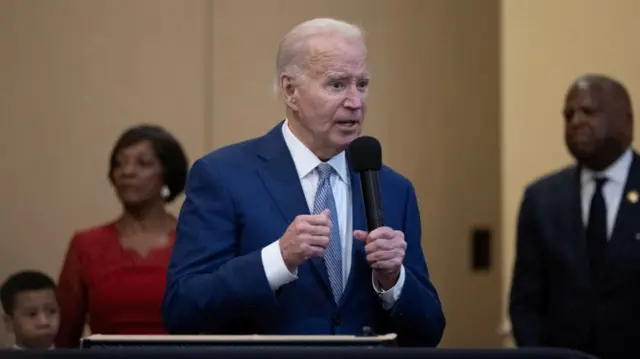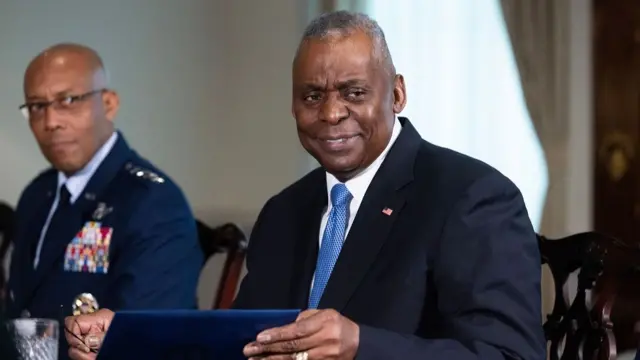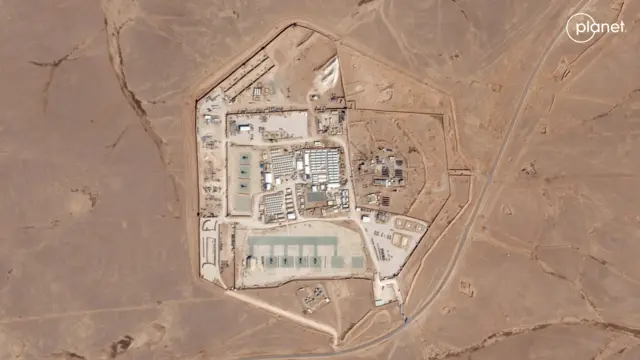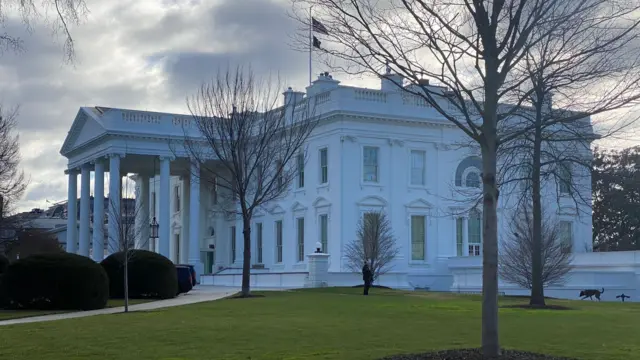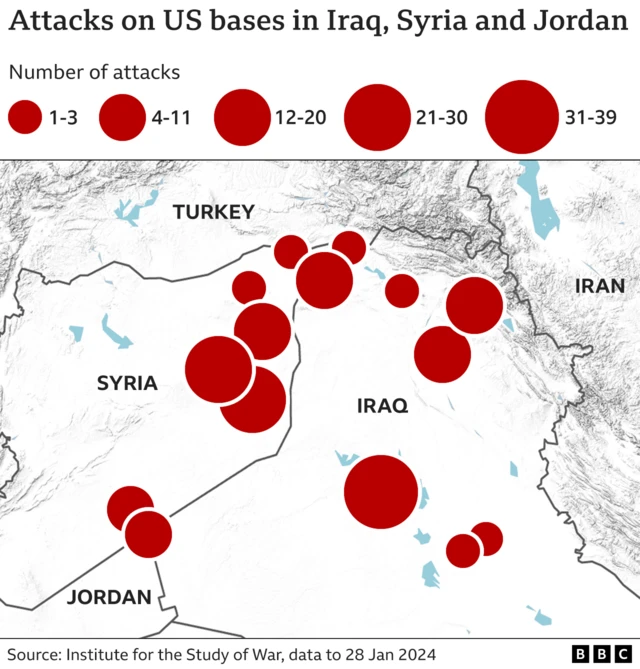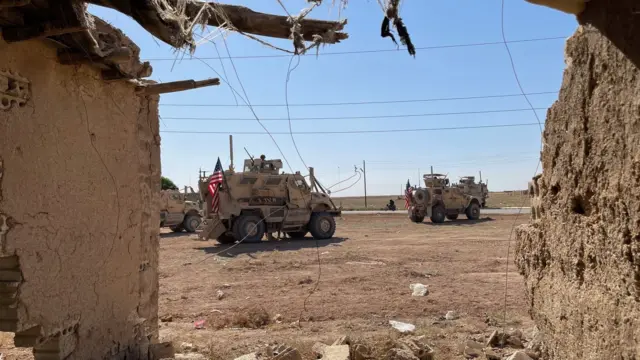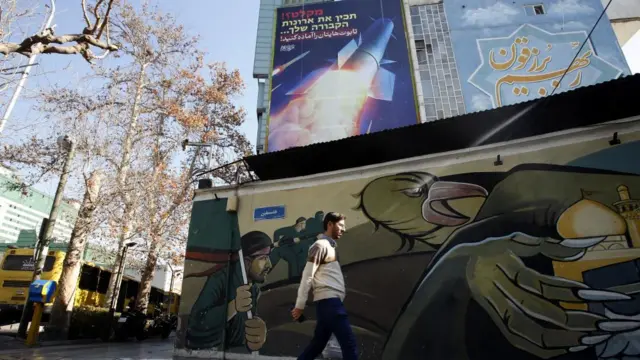Biden 'not looking at political polls' ahead of responsepublished at 19:22 GMT 29 January 2024
 Bernd Debusmann Jr
Bernd Debusmann Jr
Reporting from the White House
The news briefing has turned a bit tense - and Kirby is facing increasingly heated questions from members of the White House press corps about the US response to the drone attack in Syria.
Just a few minutes ago, Kirby was forced to address US domestic considerations about a wider war in the Middle East, telling reporters that the president "is not looking at polls or at the electoral calendar" as he weighs his military options.
"He's not looking at political calculations....as he works to protect our troops," he said.
Kirby has said that Biden has "the authority" to respond and would coordinate with Congress to keep them informed about future military operations.


